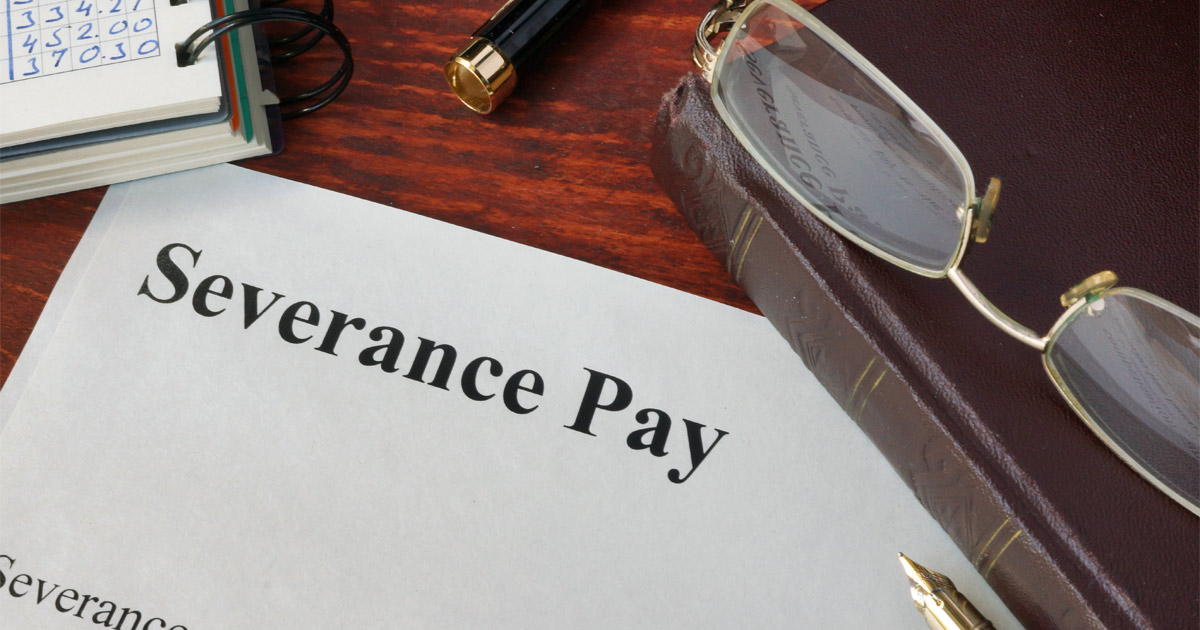New Jersey labor laws do not generally require an employer to pay severance to a terminated employee. Some employers have internal policies that allow for severance payments. Therefore, they must make them according to their stated policy or an employee’s contract, if applicable. Severance pay is most often used to soften the blow of an unexpected firing, layoff, or other termination.
However, it is essential to note that New Jersey employers who have more than 100 workers and have operated in the state for more than three years must provide adequate notice of termination, mass layoffs, or transfer of operations.
Employers who do not provide this notice are obligated to give their full-time employees severance pay equal to one week’s pay for each year of service. This payment is in addition to any other severance negotiated under a contract, collective bargaining agreement, or other reason.
Federal law also requires employers to give adequate termination notice. The federal Worker Adjustment and Retraining Notification (WARN) Act requires certain larger employers to provide advance notice of mass layoffs or plant closings that will result in a specified number or percentage of employees losing their jobs.
How Much Severance Will I Receive if My Employer Offers It?
Because severance payments are not required under labor laws, there are no standards for employers to formulate their own severance policies. Most will consider a variety of factors, including the employee’s length of service. A standard offering is one or two weeks of pay for every year of service. Of course, senior executives may have contracts that allow for much more than this.
Some employers will allow the terminated employee choose to receive their severance in a lump sum or as continued salary payments. Employees should carefully consider the tax implications and their ability to receive unemployment compensation when making their decision.
Sometimes employers will not offer any severance at all, or offer severance pay that is much lower than you believe you deserve. In those cases, or with any type of termination, it may be worth consulting with a lawyer experienced in employment law to understand your rights and options.
Should I Have a Lawyer Review My Severance Package?
In almost all cases, the answer is yes. An employer’s severance agreement nearly always requires the employee to sign away important legal rights before receiving severance benefits. It is a good idea to have an employment lawyer review the contract so that you understand and agree with it.
There may be a possibility that your lawyer can negotiate a better severance package for you. For example, they could possibly negotiate more pay or modify or eliminate a provision, such as a noncompete clause. They may even succeed in getting your former employer to provide an appropriate job reference or arrange for a lump sum versus staggered payments.
If you have suffered discrimination, harassment, or retaliation, or believe you experienced wrongful termination, an employment lawyer will be of immense help. They can negotiate for you based on a legal claim.
As you find new employment, your lawyer may also be able to negotiate an employment agreement that includes a severance provision in the contract if you have one.
Marlton Employment Lawyers at Burnham Douglass Advocate for Employee Rights
Employment issues can be intimidating. Employees who are being harassed, discriminated against, unfairly let go, or laid off may not believe they have rights or may be afraid to go up against their employer. The Marlton employment lawyers at Burnham Douglass are available to discuss your employment issues. They will advise you of your options and rights. Contact us online or call us at 856-751-5505 for a free consultation. We are located in Marlton and Northfield, New Jersey, and we serve clients throughout South Jersey, including Camden County, Burlington County, Atlantic County, Gloucester County, and Mercer County.


